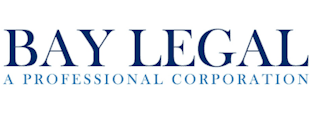A Legal Guide to Protecting Your Crypto Assets
In the dynamic, fast-paced world of blockchain technology and cryptocurrencies, digital assets are rapidly emerging as a potent form of wealth. With the digital asset market’s exponential growth, the need for a robust legal framework to safeguard these assets is paramount. However, with the technology’s nascency, coupled with its complex and often misunderstood nature, many investors are left grappling with how to protect their burgeoning crypto wealth legally. This guide aims to illuminate the key steps investors should consider to legally safeguard their digital assets and navigate this complex terrain.
Introduction: The New Era of Wealth – Crypto Assets
Cryptocurrencies, tokens, non-fungible tokens (NFTs), and digital coins collectively form the multifaceted landscape of crypto assets. Unlike traditional forms of value, these digital assets operate independently of any central bank. They harness cryptographic techniques to facilitate secure transactions and control the creation of new units.
The popularity of these digital assets stems from their potential for high returns and their fundamental role in decentralized finance (DeFi). However, their intangible nature and the complexity of the technologies they employ necessitate a unique approach to legal protection. Here’s a step-by-step guide to help you safeguard your digital wealth.
Step 1: Knowledge is Power – Understanding Your Rights
The first step to protecting your digital assets is understanding your rights. The legal status of cryptocurrencies and other digital assets varies significantly across jurisdictions due to the nascent nature of the technology. Some countries embrace crypto, while others have restricted or banned its use. Consequently, it is crucial to familiarize yourself with the laws and regulations governing crypto assets both locally and internationally.
Do not hesitate to consult with legal experts specializing in cryptocurrency and digital asset law. They can provide invaluable insights and advice tailored to your specific circumstances and investment portfolio. Furthermore, stay abreast of the evolving international standards for digital assets, such as those outlined by the Financial Action Task Force (FATF).
Step 2: Documenting your Digital Footprints – The Importance of Proper Record Keeping
Keeping detailed records of your crypto transactions is non-negotiable. Ensure you note down dates, amounts, and the addresses of both the sender and receiver for each transaction. These records serve two essential functions.
Firstly, they can provide legal evidence of ownership in disputes. Secondly, as tax obligations for cryptocurrency profits become more established, this information becomes vital for accurate tax reporting. In many jurisdictions, failure to correctly report crypto-related income can lead to penalties.
Step 3: Inheritance in the Digital Age – Crypto and Estate Planning
Inclusion of your digital assets in your estate planning is another critical consideration. Access to crypto assets requires knowledge of private keys – a unique and irreplaceable string of characters that authenticate the owner of the asset.
Therefore, it’s essential to ensure your will or trust includes detailed instructions on how to access these digital assets. Engage an attorney experienced in estate planning for digital assets to help you draft a secure and comprehensive plan. Remember, losing access to your private keys equates to losing your digital assets. In the cryptosphere, the adage ‘not your keys, not your coins’ rings painfully true.
Step 4: Fortifying Your Digital Vault – How to Secure Your Assets
Given the frequent news of security breaches and hacks, the security of your digital assets should be a top priority. Using secure methods to store your cryptocurrencies is crucial. Consider using hardware wallets – physical devices that securely store users’ private keys offline. These devices offer greater protection than online wallets, as they are immune to online vulnerabilities.
Additionally, implement multi-factor authentication (MFA) to secure access to your digital wallets and trading platforms. MFA adds an extra layer of security by requiring multiple forms of verification.
Step 5: Legal Pitfalls and Precautions – Mitigating Legal Risks
Cryptocurrency transactions are irreversible. If you send cryptocurrency to an incorrect address, there’s no way to retrieve it. Additionally, due to blockchain’s pseudo-anonymous nature, it can be a conduit for illicit activities such as money laundering or funding criminal activities.
Therefore, it’s critical to verify the legitimacy of the parties with whom you transact. Use blockchain analysis tools to ensure the coins you are receiving are not associated with illegal activities.
Step 6: Hedging Your Bets – The Role of Insurance in Crypto Asset Protection
As the digital asset ecosystem matures, insurance products tailored to crypto assets are slowly emerging. While not yet mainstream, insurance coverage for digital assets provides an additional safety net against theft or loss from cyber breaches or physical damage.
Some insurance firms offer coverage for personal digital assets, while others cater to businesses operating in the crypto space. In either case, ensure that the policy you choose adequately covers your needs.
Conclusion: Safely Navigating the Crypto Frontier
As the cryptosphere continues to evolve and mature, safeguarding your digital assets is not a mere option; it’s an absolute necessity. Protecting your crypto wealth requires a multifaceted approach, encompassing legal knowledge, proper documentation, rigorous security measures, risk mitigation strategies, and potentially insurance.
With the right resources and professional guidance, investors can confidently navigate this exciting new frontier

